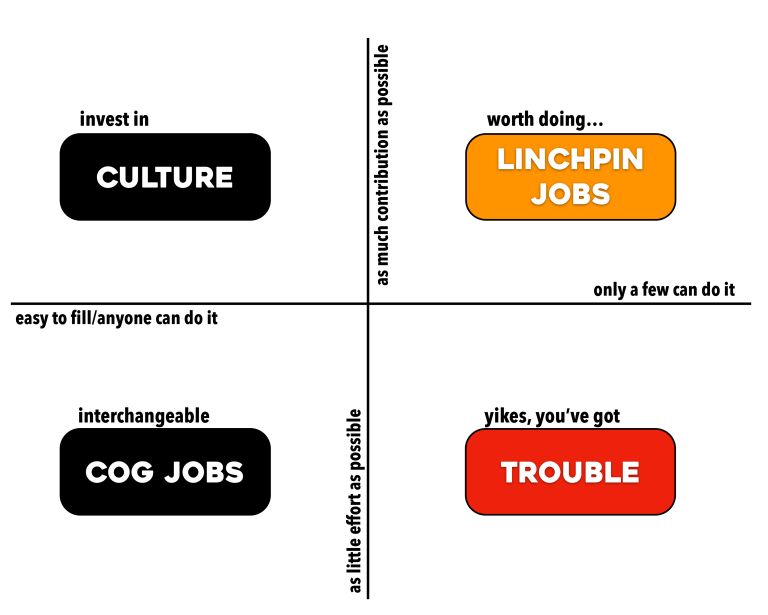
Source: https://seths.blog/2018/12/where-are-the-linchpin-jobs/
Seth Godin (2018) is pointing to the bad deal that industry has offered the worker:
Here’s a job. We’ll pay you as little as we can get away with while still being able to fill the job. We’ll make sure it’s easy to find people for this job, because we don’t want you to have much in the way of power or influence. We’ll use software to read the resumes, and we’ll do it in huge batches.
In return, you’ll work as little as you can get away with. That’s the only sane way to respond to the role of being a cog. If the system is going to squeeze you, no need to volunteer.
Godin warns us that the most cog-like jobs are will eventually be done by machines and that cog-like work doesn’t create nearly as much value as truly human work. He is looking to his community and to employers to take the risk and move from compliance and cog based jobs to jobs that require the employee to use their unique talents and abilities to contribute in ways that only they can.
If this is going to work I think educators also have make a shift in the way that we prepare our learners to become contributing members of society rather then just compliant cogs. We need to move away from the information transfer model of education that uses the industrial age and standards testing approach which simply asks students to regurgitate information and fall into compliance. In contrast we need to embrace the learner and create significant learning environments that give the learner choice, ownership and voice through authentic leaning opportunities if we really want to empower our learners to do the work that only a few humans can really do and to contribute to a better humanity and society.
Are we preparing our students to be compliant cogs or creative contributors?
References:
Godin, S. (2018, December 6). Where are the Linchpin jobs? [Blog] Retrieved from: https://seths.blog/2018/12/where-are-the-linchpin-jobs/






























